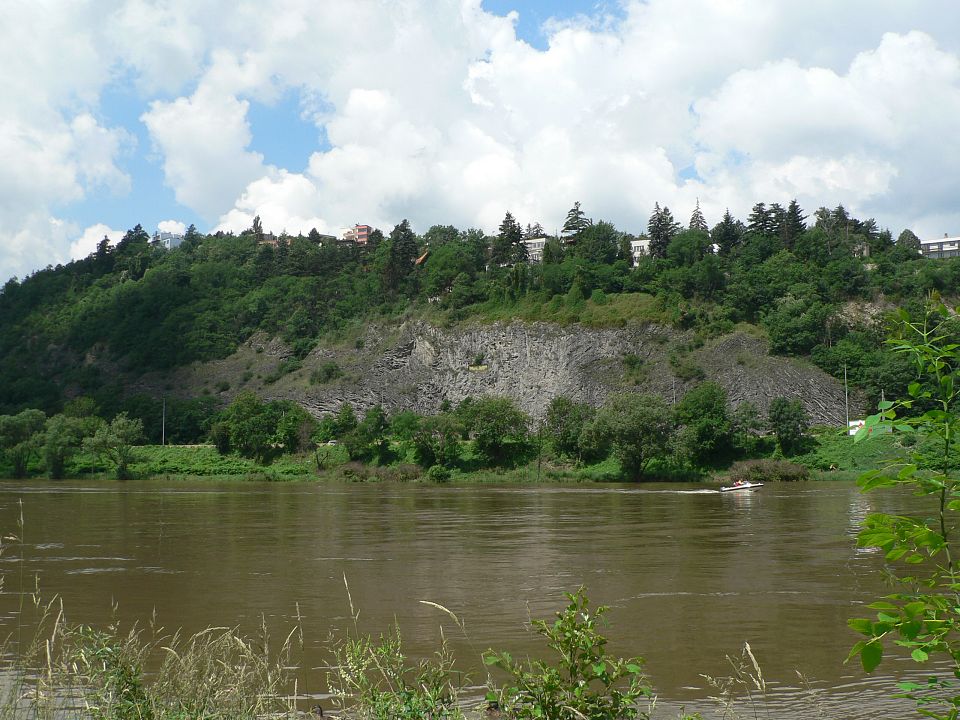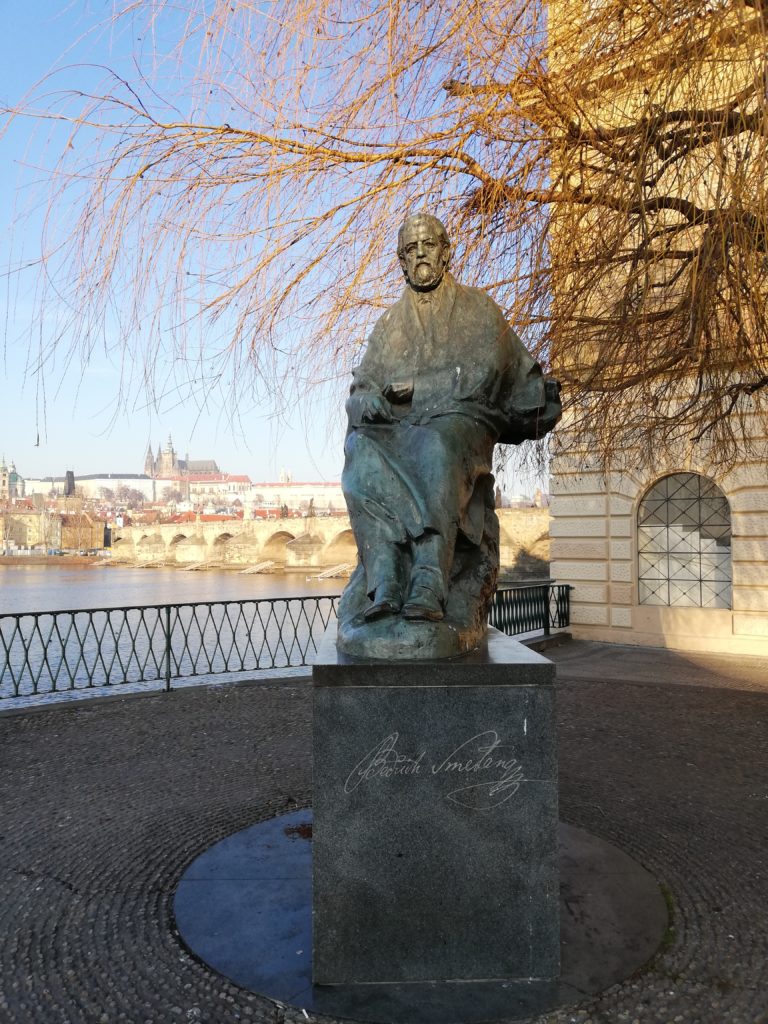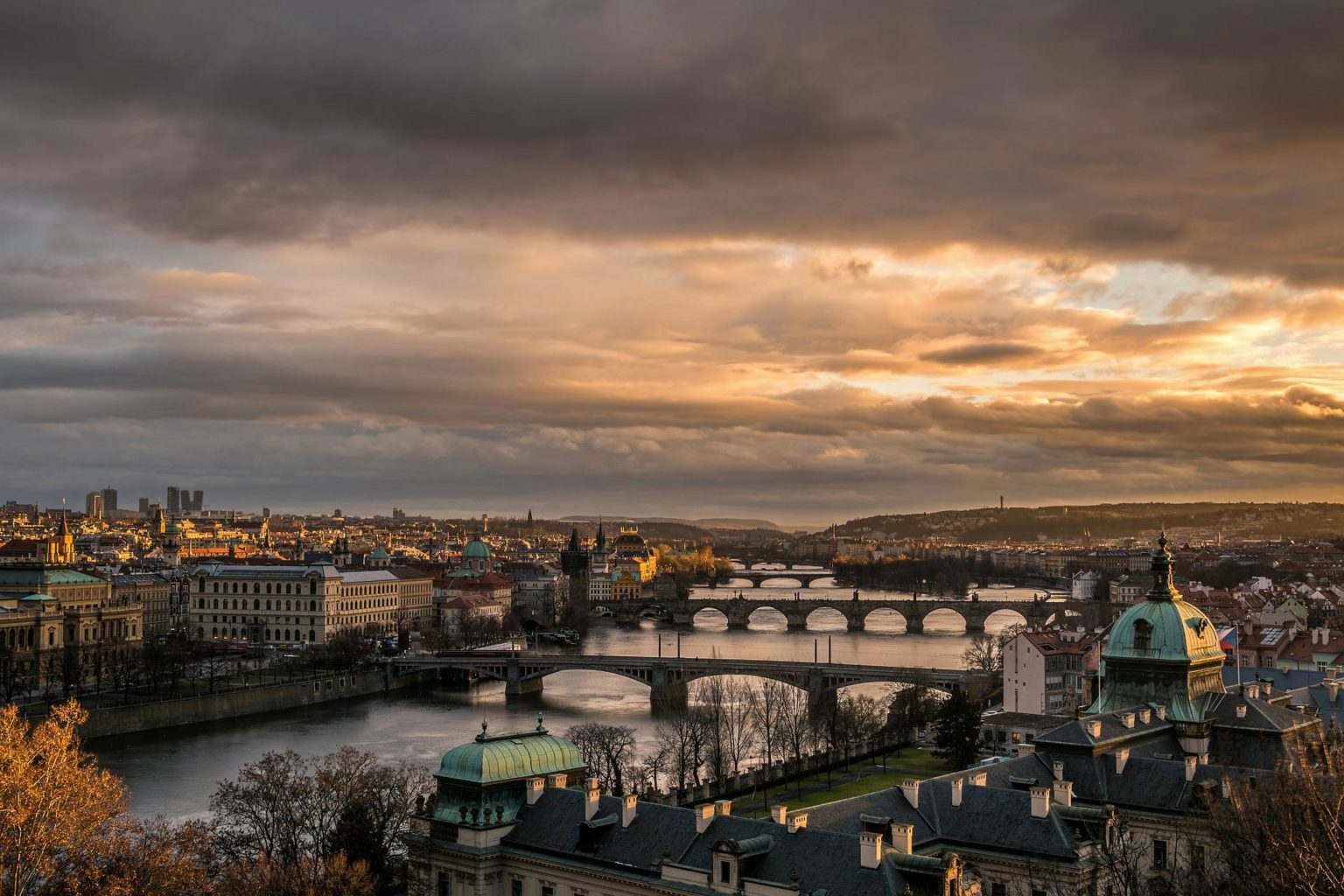Bedřich Smetana’s symphonic poem Vltava is often called Die Moldau. Both the words are the names of the same river, one is Czech and the other is German. When this piece of music was created the German language dominated the territory of the present-day Czech Republic. Its lands belonged to the powerful Hapsburg Empire.
How Smetana Became a Czech Composer
Bedřich Smetana grew up in a large family that lived in the town of Litomyšl. His father, a master brewer, played violin from time to time and introduced his son to music.
Bedřich showed an early talent for it. At the age of four, the boy began to play the violin and piano, at the age of six, he gave his first public performance.
After receiving an education, Smetana initially tried to fulfill his potential in Prague. His career as a pianist did not work out. The young man scraped a living as a piano tutor to the children of a count, then opened his own music school. He also composed, with moderate success.
Bedřich Smetanа loved his homeland but was not sure that it was a place where he could achieve something. He was offered a job in the Philharmonic Society of the Swedish city of Gothenburg, and Smetana readily agreed to move. He worked in Sweden for five years, developing his reputation as a composer and a conductor.
In the autumn of 1860, Austria, weakened by defeats in the Austro-Italian-French war, promulgated the October Diploma – a new constitution that gave the Czech language an equal status. This boosted the nascent national culture. Czech intellectuals dreamt about their own literature and music, they explored the folk culture and experimented with its materials. Attracted by the interesting possibilities, Bedřich Smetana decided to return.
Smetana took up the position of the conductor in Prague’s new Provisional Theatre, founded as a home for nationalistic opera. He learned Czech (Bedřich Smetana was brought up speaking German) and started to write operas based on the plots of Czech legends.
The years of work in the new theater weren’t easy for him. Numerous conservative critics disapproved of his style. The composer was criticized for being too Wagnerian and not nationalistic enough. Unlike many patriotic composers, who created their pieces from old combined folk melodies, Bedřich Smetana purposefully used the achievements of contemporary European music. He always sought to create operas that would be Czech not in form, but in essence.
Despite the pressure on him, Smetana devoted more than twenty years of his life to the Provisional Theater. In 1874 he had to resign, though – due to health problems. The worst thing that can happen to a composer happened to Smetana: he lost his hearing.
First, Bedřich Smetana noticed that his ears were tuned to different pitches. A bit later, it became difficult for him to distinguish sounds. If he had to put up with the silence of deafness, it would have been half the trouble – Smetana was haunted by tinnitus. It seemed to the composer that two male voices were constantly singing a disgusting piece in G major to the accompaniment of an organ.
Astoundingly, Smetana continued to write music. More astoundingly, he was to write a masterwork.
The Best River in the World
In 1874, when Smetana’s hearing began to deteriorate rapidly, he set to work on a cycle of symphonic poems Má vlast – My Homeland.
It included six independent but related works celebrating Czech landscapes and culture.
All the symphonic poems were, according to the rules of the genre, programmatiс – that is, they rendered particular extramusical narratives. Some parts of Má vlast can hardly be unraveled without reading their accompanying text. The second poem, Vltava, is perfectly understandable even without comments: the secret of its content is sufficiently revealed by its title.
Each of us has his own favorite river – the one in which we swam in childhood, or the one near which we walked in our youth. It is not necessarily big in reality, but we imagine it as the widest and deepest in the whole world.
Smetana’s majestic Vltava is based on his personal experience too. It was sparked by his visit in 1867 to the countryside where two streams joined this river and his boat trip in 1870 along St John’s Rapids, a fast-flowing stretch of the Vltava. By the end of the 60s, Smetana was a mature person with established, hard-won views. Admiring his river, he saw in it the way of his country from the past to the future.

In his poem, the Vltava is born from two sources, slowly flows through wide meadows and groves, speeds up on rapids, and finally disappears into the distance.
The composer does not see what the Vltava is becoming there, beyond the horizon line, but he lets it go with a light heart. Smetana believes in his river – and in his homeland.
As I already said, you don’t need to read the author’s commentary to the symphonic poem Vltava to get its message.
The images that your imagination will offer you in the process of listening to it will be essentially true, whether they coincide with the images that inspired Smetana or not. However, in order to quickly feel the mood of the work, you can rely on lyrical episodes from its program.
Try to hear how the hunters track down the beast on the river bank (wind instruments imitate the horn calls), peasants have fun at a village wedding (a rustic dance in polka rhythm), and water-nymphs dance in the moonlight (gentle passages of the harp). Shortly before the final, epic Vyšehrad motif sounds – the composer depicts the ruins of the castle, which witnessed the greatness of Bohemia, the largest historical region of the Czech lands.
The bright pictures appear and disappear as we travel down the river, while the theme of the Vltava is carried by an expressive refrain. Reviving, it becomes more and more solemn.
Today Vltava is the unofficial anthem of the Czech Republic. A fragment of this piece invariably opens the annual Prague Spring music festival, and it welcomes the passengers of Czech Airlines planes during boarding.

Czechs remember and love Bedřich Smetana. A statue of Smetana stands not far from the very center of Prague, just above the Vltava. Guests and residents of the city stop to admire the scenery in the company of the bronze composer.
The old city, spread out behind him, looks splendid. If Smetana could walk around today’s Prague, I think he would like it.
- Composers – Their Lives And Works – DK, London, 2020
- The Classical Music Lover’s Companion to Orchestral Music – Robert Philip. Yale University Press, 2020
- Секреты великих композиторов (The Secrets of Great Composers) – Артем Варгафтик, АСТ, Москва, 2021

